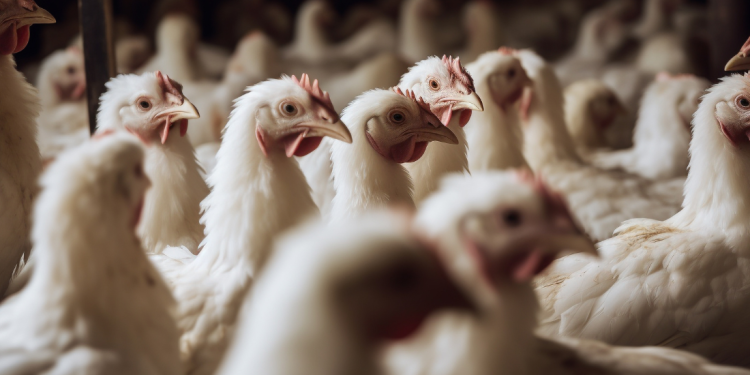By Ndumiso Tshuma
In a recent discussion on the challenges faced by poultry farmers during the summer season, Dr Enoch Machingauta, a Poultry Health Care Specialist at Econutrivet, highlighted stunted growth as a critical issue impacting broiler chicken production.
Machingauta explained that stunted growth in broiler chickens can result from both infectious and non-infectious factors.
He noted that farmers should first evaluate their feed specifications and management practices, which include ensuring the availability of feed and addressing diseases like reovirus, which can lead to growth issues.
“Stunting in broiler chickens can stem from several infectious and non-infectious factors. It’s essential to consider feed specifications, management issues such as feed availability, and diseases like reovirus. These can often be addressed once diagnosed,” Machingauta said.
He also stressed the importance of assessing the clinical condition of the flock, advising farmers to consider key indicators such as flock uniformity, mortality rates, average weight, and bird age.
“A farmer must evaluate the clinical picture of the flock, checking uniformity, mortality, average weight, and bird age. Solutions may involve replacing the feed, ensuring proper feeder access, and using products like Endocox and Hepator Booster to manage reovirus,” he added.
Machingauta noted that herbal alternatives, such as artichoke-based products like Bedgen 40, can enhance digestion and nutrient absorption, contributing to better growth outcomes.
When addressing growth concerns, Machingauta underscored the importance of maintaining high hygiene standards to prevent disease and ensure the overall health of the flock. He stressed that proper hygiene practices not only help avoid stunted growth but also promote food safety.
“Facilities, equipment, and feeding systems should be regularly cleaned and disinfected. Implement strict access controls, quarantine measures, and protective clothing. Proper disposal of manure, dead birds, and uneaten feed is crucial for maintaining a sanitary environment,” Machingauta said.
He also advised farmers to ensure a clean, fresh water supply and conduct regular water quality testing. In addition, he recommended storing high-quality feed properly to avoid contamination and ensure optimal nutrition for the birds.
“Health monitoring should include regular inspections for signs of illness and administering health supplements like Endocox and Hepator Booster as needed. Farm workers must adhere to strict handwashing and sanitation protocols to prevent the spread of disease,” Machingauta added.
He further highlighted the importance of maintaining clean and well-functioning equipment to minimize contamination risks and advised farmers to implement effective pest control measures to manage rodents, insects, and other disease-carrying pests.
“Accurate record-keeping of farm activities, health issues, and treatments is also vital for effective farm management,” Machingauta concluded.

